This article was published as part of the Data Science Blogathon
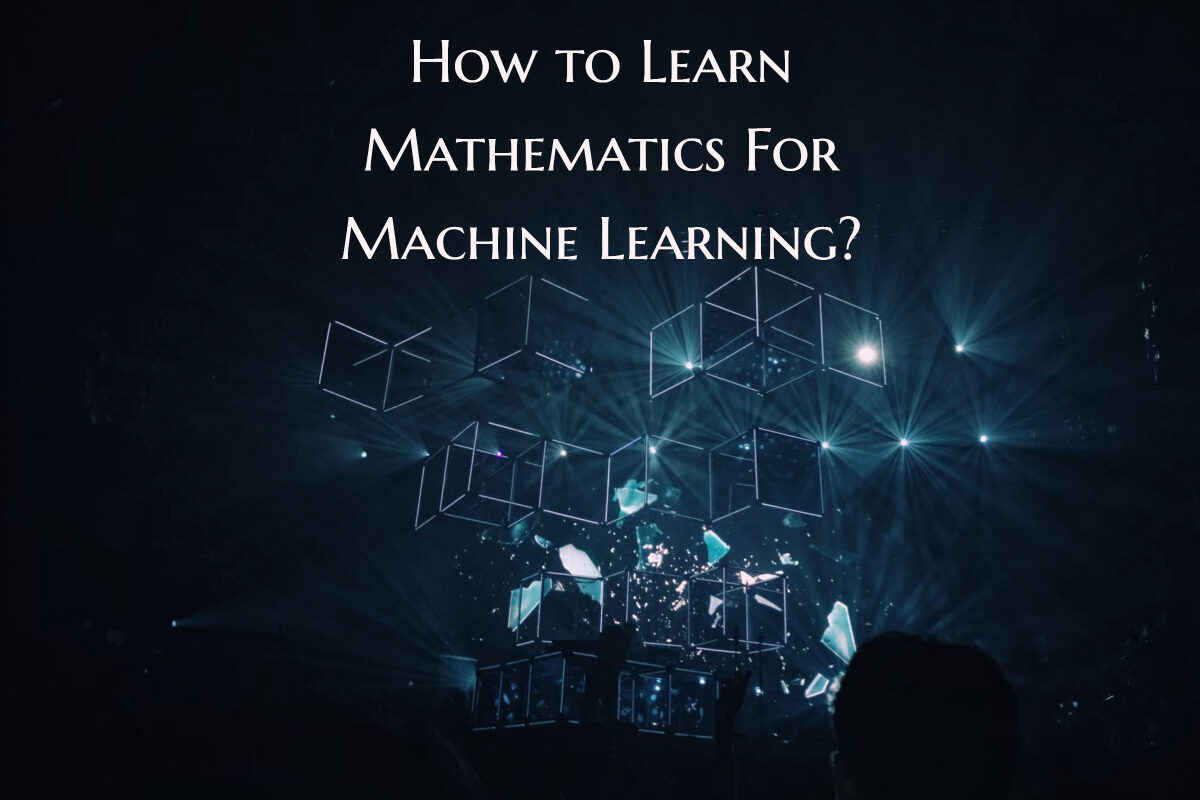
Are you an aspiring data scientist who is fascinated by how things work in the world of data science and machine learning?? Good, congratulations on choosing the right career path that best suits your needs at this time. But nevertheless, Did you know you need to master math for machine learning and data science? Yes, you heard well.
It doesn't matter what kind of love-hate relationship you had with math in school. The basic concepts used in mathematics and statistics are actually very useful for making strategic decisions when designing machine learning models.. Then, if you have decided to choose this career in the field of data science, you must begin to love the concepts of mathematics and implement them in your future, as it is one of the prerequisites for machine learning.
What is the correlation between machine learning and math?
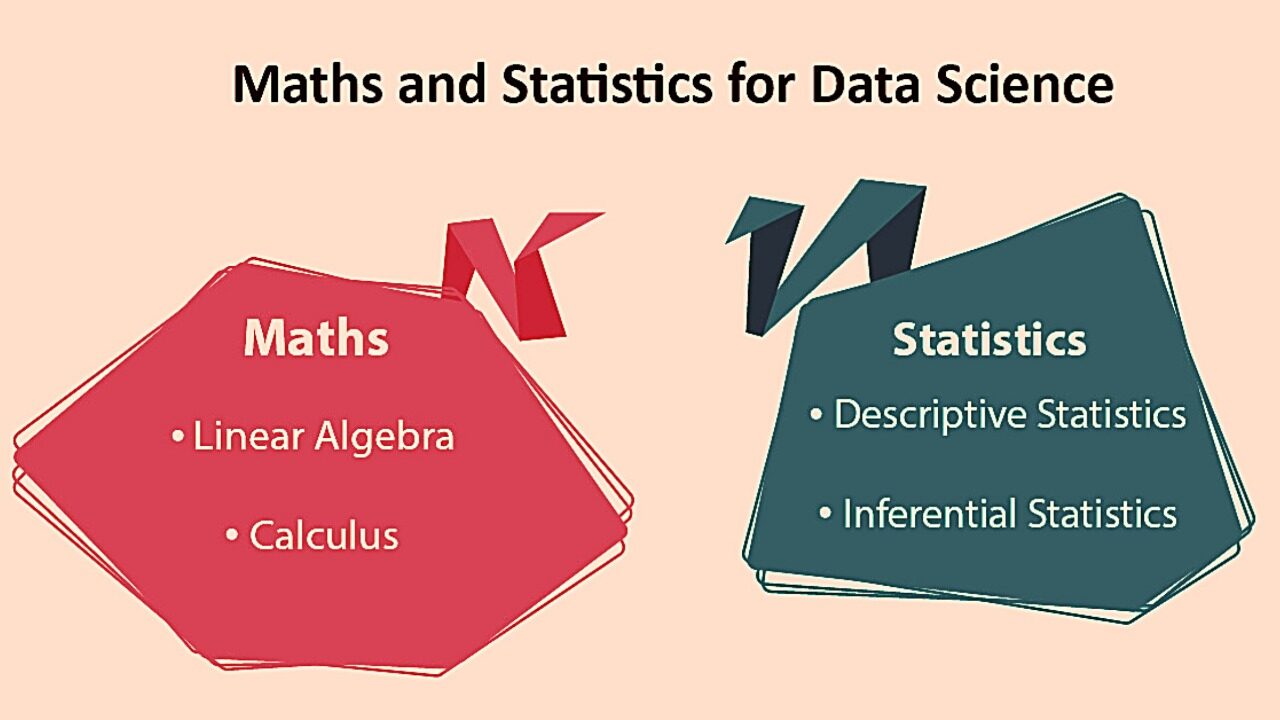
Machine learning is all about math, which in turn helps create an algorithm that can learn from data to make an accurate prediction. The prediction could be as simple as classifying dogs or cats from a certain set of images or what kinds of products to recommend to a customer based on previous purchases.. Therefore, it is very important to properly understand the mathematical concepts behind any core machine learning algorithm. Thus, helps you choose all the right algorithms for your data science and machine learning project.
Machine learning relies primarily on mathematical prerequisites, so as long as you can understand why math is used, you will find it more interesting. With this, you will understand why we choose one machine learning algorithm over the other and how it affects the performance of the machine learning model.
Points to be covered in this blog post
-
What mathematical concepts are involved in machine learning?
-
Why do you need math in machine learning projects?
-
What is the correct way to learn it?
In today's blog post, we will discuss exactly all the math concepts you need to learn to master data science and machine learning concepts. We will also learn why we use math in machine learning with some examples.
Let's start by looking at the many forms of math used in data science and machine learning so that you can better understand what you really need to know about math for the data science profession..
What mathematical concepts are implemented in data science and machine learning
Machine learning is based on four critical concepts and is statistical, linear algebra, probability and calculation. While statistical concepts are the central part of each model, calculus helps us learn and optimize a model. Linear algebra is exceptionally useful when dealing with a large data set, and probability helps predict the sustenance of events that will occur.. These are the math concepts that you will encounter in your data science and machine learning career quite often..
Mathematical Concepts Important for Machine Learning and Data Science:
-
Linear algebra
-
Calculation
-
Probability theory
-
Discrete mathematics
-
Stats
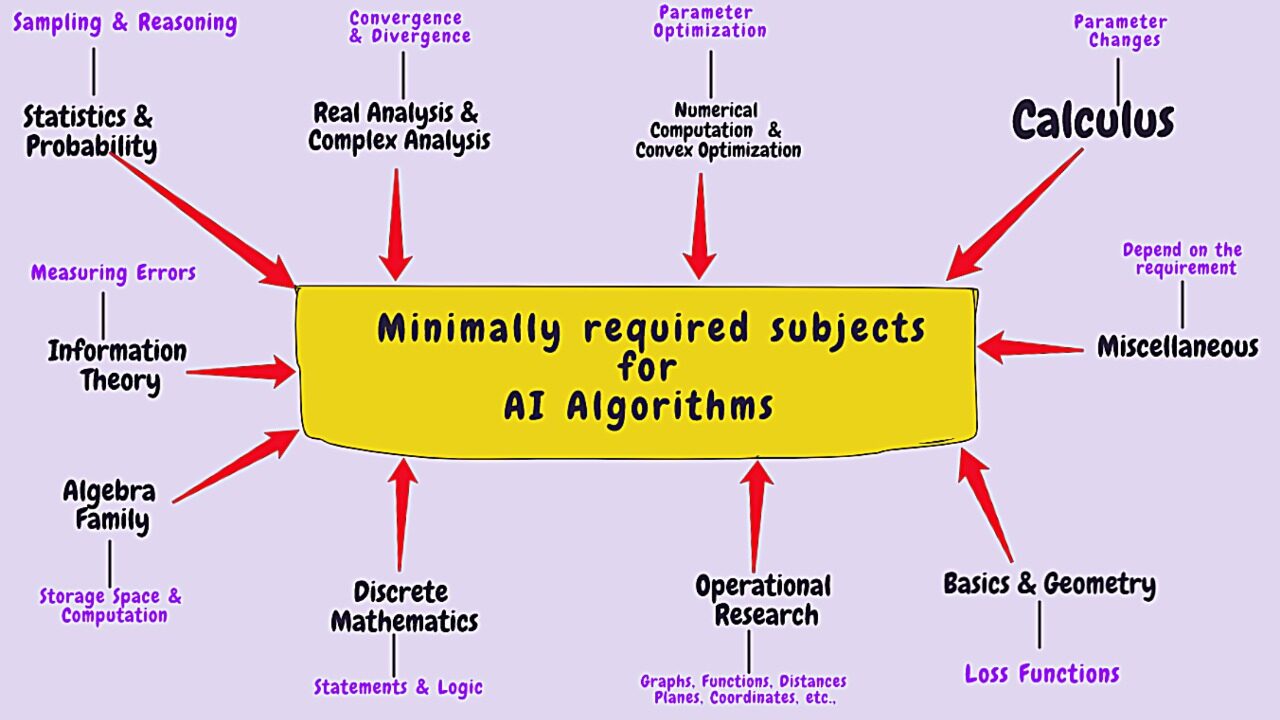
Concept of linear algebra in machine learning:
Understanding how to construct linear equations is a critical component in developing core machine learning algorithms.. These will be used to evaluate and observe data collection. Linear algebra is applied in machine learning algorithms on loss functions, regularizationRegularization is an administrative process that seeks to formalize the situation of people or entities that operate outside the legal framework. This procedure is essential to guarantee rights and duties, as well as to promote social and economic inclusion. In many countries, Regularization is applied in migratory contexts, labor and tax, allowing those who are in irregular situations to access benefits and protect themselves from possible sanctions...., matrices de covarianza, singular value decomposition (SVD), matrix operations and classification of support vector machines. It is also applied in machine learning algorithms such as linear regression. These are the concepts needed to understand the optimization methods used for machine learning.
To perform a principal component analysis that is used to reduce the dimensionality of the data, we use linear algebra. Linear algebra is also widely used in neural networks for network rendering and processing.. Needless to say, you must be interested in linear algebra, as it is widely used in data science field.
But nevertheless, don't be intimidated by this, as understanding the concepts will be important, but you don't need to be an expert in linear algebra to solve most problems. Only a solid understanding of the concepts will be good enough. Math for Machine Learning by Marc Peter deisenroth is an excellent book that will help you start this journey if you struggle with math at first..
Calculation in machine learning:
Many students who did not like learning calculus that they were taught in school will be hit hard., as it is an integral part of machine learning. Fortunately, you may not need to be proficient in calculus, it is only important to learn and understand the principles of calculus. What's more, you must understand the practical applications of machine learning through computation during model construction.
Then, if you understand how the derivative of the function returns its rate of change in the calculation, podrá comprender el concepto de descenso de gradientGradient is a term used in various fields, such as mathematics and computer science, to describe a continuous variation of values. In mathematics, refers to the rate of change of a function, while in graphic design, Applies to color transition. This concept is essential to understand phenomena such as optimization in algorithms and visual representation of data, allowing a better interpretation and analysis in.... On the gradient descent, we need to find the local minima for a function and so on. If you have saddle points or multiple minima, a gradient descent may find a local minimum and not a global minimum, unless you start from multiple points. Some of the topics needed to master the calculus part in data science are Differential and Integral Calculus, Partial derivatives, Vector value functions, Directional gradients.
El cálculo multivariado se utiliza en el trainingTraining is a systematic process designed to improve skills, physical knowledge or abilities. It is applied in various areas, like sport, Education and professional development. An effective training program includes goal planning, regular practice and evaluation of progress. Adaptation to individual needs and motivation are key factors in achieving successful and sustainable results in any discipline.... de algoritmos, as well as in the descent of gradients. Derivatives, divergence, curvature and quadratic approximations are important concepts that you can learn and implement.
Machine learning math may seem intimidating to you right now, but nevertheless, you will be able to understand the computational concepts that are required to build a successful machine learning model in a few days of constructive learning.
Use of descriptive statistics
Descriptive statistics is a fundamental concept that every aspiring data scientist must learn to understand machine learning when working with classifications such as logistic regression., distributions, discrimination analysis and hypothesis testing.
If I was struggling with statistics in school, then you must put your 200 percent to learn the mathematical part of statistics, as it is very essential for you to become a successful data scientist. To put it in simpler words, statistics is the main part of mathematics for machine learning. Some of the fundamental stats needed for ML are Combinatorics, Axioms, Teorema de Bayes, Variance and Expectation, Random Variables, Conditional and Joint Distributions.
Discrete mathematics in machine learning
Discrete mathematics deals with non-continuous numbers, most of the time integers. Many applications require the use of discrete numbers. When scheduling a fleet of taxis, for instance, can't send 0,34 taxis; you must send the complete ones. Can't have half postman or make him visit 1 and a half places to deliver the letters.
Many of the structures of artificial intelligence are discrete. A red neuronalNeural networks are computational models inspired by the functioning of the human brain. They use structures known as artificial neurons to process and learn from data. These networks are fundamental in the field of artificial intelligence, enabling significant advancements in tasks such as image recognition, Natural Language Processing and Time Series Prediction, among others. Their ability to learn complex patterns makes them powerful tools.., for instance, has an integer number of nodes and interconnections. Can not have 0,65 nodes or one-ninth of a link. As a result, the mathematics used to build a neural network must include a discrete element, the integer represents the number of nodes and interconnections.
You can get away with the fundamentals of discrete math for machine learning, unless you want to work with relational domains, graphic models, combinatorial problems, structured prediction, etc. To master these concepts, must consult books on discrete mathematics. Fortunately for computer science graduates, these concepts are adequately covered at your university. But nevertheless, others may need to try harder to understand this topic. Therefore, discrete math is a very important component of AI & ML.
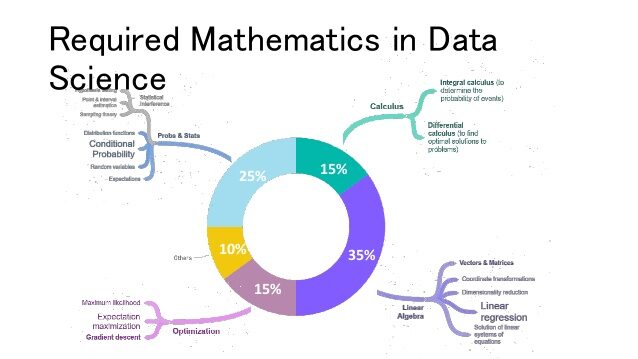
Probability theory in machine learning
To work successfully in a machine learning predictive modeling project, it would be reasonable to conclude that probability is essential.
Machine learning is the process of creating prediction models from ambiguous data. Working with faulty or incomplete information is what leads to uncertainty.
Uncertainty is crucial for machine learning, but nevertheless, it is one of the components that creates more difficulties for newcomers, particularly those that come from programming experience.
In machine learning, there are three main sources of uncertainty: noisy data, limited coverage of the problem area and, of course, imperfect models. But nevertheless, with the help of the right probability tools, we can estimate the solution to the problem.
Probability is essential for tests of hypotheses and distributions such as the Gaussian distribution and the probability density function.
Let's now look at the applications once we have analyzed the types in math and data science.
Why should you care about the math? Why do you need math in machine learning projects?
There are numerous reasons why math for machine learning is important, and I will share some of the important tips below:
-
Choosing the best algorithm requires taking precision into account, training time, the complexity of the model, The number of parametersThe "parameters" are variables or criteria that are used to define, measure or evaluate a phenomenon or system. In various fields such as statistics, Computer Science and Scientific Research, Parameters are critical to establishing norms and standards that guide data analysis and interpretation. Their proper selection and handling are crucial to obtain accurate and relevant results in any study or project.... y el número de funciones.
-
Choice of parameter values and validation methods.
-
Understanding bias-variance compensation allows you to identify overfitting and misfitting issues that typically occur when running the program.
-
Determining the correct confidence interval and uncertainty.
What is the correct way to learn math for data science and machine learning?
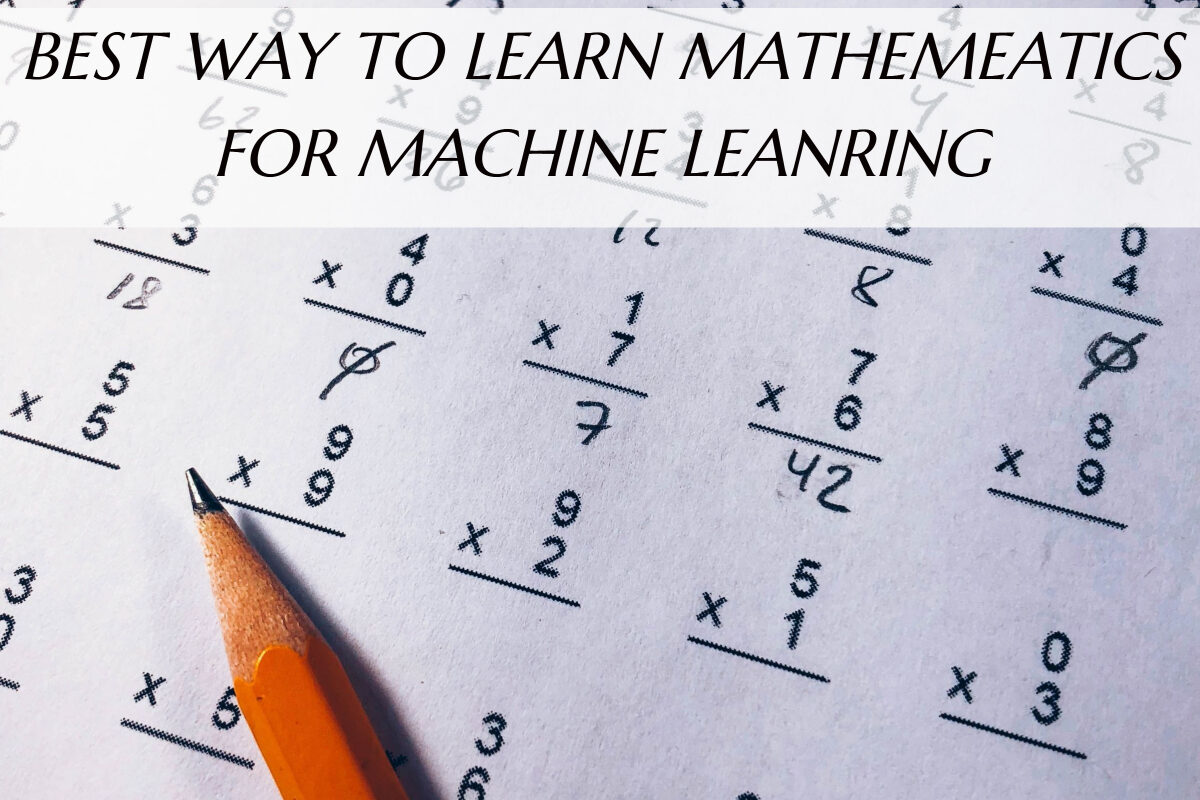
Although there are many valuable resources available on the Internet that explain concepts such as the computation of matrix decomposition vectors, la matriz de geometría analyticsAnalytics refers to the process of collecting, Measure and analyze data to gain valuable insights that facilitate decision-making. In various fields, like business, Health and sport, Analytics Can Identify Patterns and Trends, Optimize processes and improve results. The use of advanced tools and statistical techniques is essential to transform data into applicable and strategic knowledge.... de álgebra lineal, the mathematics behind principal component analysis and support vector machines. Not all resources are a comprehensive solution for your understanding. Therefore, I have compiled a list of books, YouTube websites and channels that can help you improve your theoretical concept in the field of artificial intelligence.
-
Mathematics for Machine Learning by Marc Peter Deisenroth is the book that can help you start your math journey. The practical applications of the algorithms and the mathematics behind them have been clearly explained. All the concepts of mathematics have been explained correctly. You can check the pdf online here -https: //mml-book.github.io/book/mml-book.pdf
-
Multivariate Calculus by Imperial College London – Imperial College London has basically created a YouTube series that covers the important concepts of multivariate calculus and its application in various ml algorithms.. Although the entire course is in collaboration with Coursera, Imperial College London has made it available free of charge to all curious students.
-
Khan Academy courses on Linear algebra, Probability and statistics, Multivariable calculation, Y Improvement– A very comprehensive and free resource available for all students to further their knowledge of complex concepts such as the Linear Algebra Analytic Geometry Matrix.
-
All statistics: a concise course in statistical inference by Larry Wasserman is supposedly another comprehensive resource that contains a detailed explanation of important concepts such as
-
De Udacity Introduction to statistics– is another free resource through which you can gain an initial level of understanding in the field of statistics that is needed for data science.
Conclution
It will take you between 3 Y 4 months to learn mathematical concepts and put them into practice. Check out the resources mentioned above and don't forget to keep learning it along with the machine learning algorithms so that you can understand which is the correct algorithm to choose for your model..
The media shown in this article is not the property of Analytics Vidhya and is used at the author's discretion.






